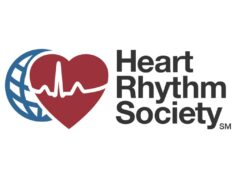
The risk of atrial fibrillation (AF) is increased in subclinical hyperthyroidism, but it has been is uncertain whether variations in thyroid function within the normal range or subclinical hypothyroidism are also associated with AF. A study published in Circulation found that individuals with higher levels of thyroid hormone (free thyroxine or FT4) circulating in the blood were more likely to develop AF, even when the levels were within normal range.
“Our findings suggest that levels of the thyroid hormone, free thyroxine, circulating in the blood might be an additional risk factor for atrial fibrillation,” says study lead author Christine Baumgartner, University Hospital of Bern, Switzerland, and University of California San Francisco, USA. “Free thyroxine hormone levels might help to identify individuals at higher risk.”
Previous studies showed that the risk of irregular heartbeat is greater among individuals who produce too much thyroid hormone than among those with normal hormonal levels. What was unclear, however, was whether levels that were high but still within the normal range could also increase the risk of irregular heartbeat.
To understand this relationship, investigators looked at the occurrence of irregular heartbeat among individuals with thyroid hormone levels that were still within normal range. They found that individuals with higher blood levels of FT4 within the normal range at the beginning of the study were significantly more likely than those with lower levels to subsequently develop irregular heartbeat.
When separated into four equal-sized groups, the group with the highest FT4 levels had a 45 percent increased risk of irregular heartbeat, compared to the group with the lowest levels. Even more modest increases in thyroid hormone were associated with an increased risk. Among individuals with the second highest levels, the risk was 17 percent greater, and among those with the third highest levels the risk was 25 percent greater, compared to those with the lowest levels. High levels of thyroid-stimulating hormone (TSH) within the normal range, however, were not associated with an increased risk of atrial fibrillation.
“Patients who are treated with thyroxine, one of the most frequently prescribed drugs in the United States, generally have higher circulating free thyroxine levels compared to untreated individuals,” Baumgartner says. “So, an important next step is to see whether our results also apply to these patients, in order to assess whether target free thyroxine thyroid hormone concentrations for thyroid-replacement therapy need to be modified.”









